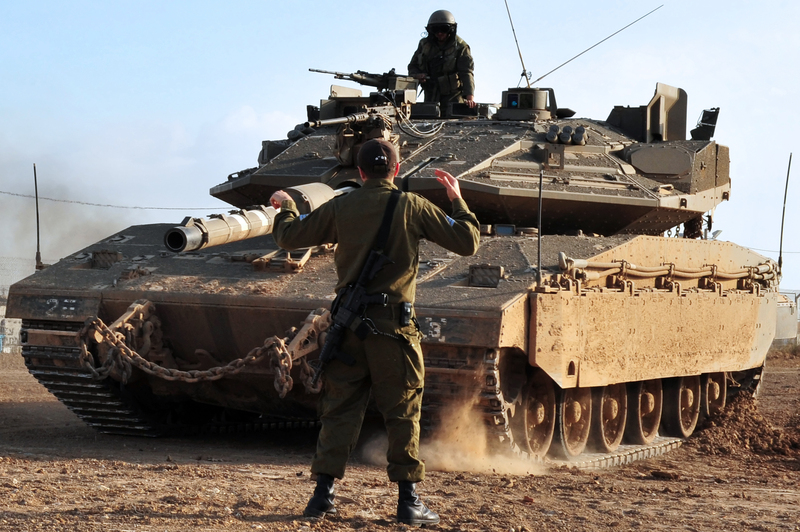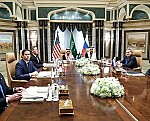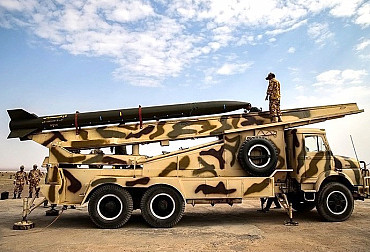The war in Israel: What did it show for the global future?
At dawn on October 7, 2023, on the day of Simchat Torah, a very important holiday for Jews, Israel was subjected to large-scale missile attacks. In a short period, several thousand of them were fired from the Gaza Strip into Israeli territory, after which rapid ground attacks launched by representatives of the radical Palestinian movements Hamas and Islamic Jihad began. More than 2.5 thousand militants, united in combat groups, rapidly destroyed all the ground fortifications separating Gaza from Israel and rushed into the interior of the country. During these actions, the terrorists showed incredible cruelty, physically destroying all those who got in their way.

The victims of this attack already in the first hour became participants of a youth music festival held in the immediate vicinity of the border, and residents of settlements, a total of almost a thousand people. Simultaneously, there were cases of sexual violence of women, cutting open bellies and beheading children. More than 150 people, including representatives of many countries, were taken hostage, and forcibly taken to the Gaza Strip.
This massive attack on Israel, which led to incredibly tragic consequences, was called in the Palestinian Hamas movement as the “Al-Aqsa Flood”. In response, the Israeli Government declared a state of emergency in the country, and then, for the first time since 1973 (the Yom Kippur War), introduced a military one. The Israel Defense Forces (Tsahal) has launched a massive non-stop bombing of the Gaza Strip. At the same time, intensive preparations for the massive land operation “Iron Swords” aimed at the complete destruction of Hamas started.
On October 28, 2023, the Israeli ground operation began. The Israeli leadership set the task of clearing this territory from the presence of Hamas and Islamic Jihad combat detachments, as Prime Minister B. Netanyahu unequivocally stated in one of his public speeches. It was done by the Israeli military within a few days.
Hamas terror attacks cannot be defended
The reaction of the foreign world to what happened in the Gaza Strip turned out to be ambiguous. Western countries have unequivocally condemned for war crimes not only the leadership of Hamas, but also the whole of Palestine. Terrorist attacks “will never be justified”, US President Joe Biden stressed in his address and warned other “hostile parties to Israel” (probably meaning Hezbollah) from trying to take advantage of the situation and launch their strikes. The political establishment of the leading European countries reacted in a similar way to what was happening. For instance, German Chancellor O. Scholz and British Prime Minister R. Sunak expressed their full approval of Israel's actions, and the head of the European Commission, U. von der Leyen, stressed that Israel has the right to defend itself and also expressed support for this country on behalf of the European Union.
The Middle Eastern countries, in turn, have shown a much more restrained attitude towards what was happening. Their leaders, for the most part, chose not to publicly notice the physical destruction of a large number of Jews, but focused exclusively on the consequences that may occur as a result of Israel's decisive actions. Even more strident was the statement of H.-A. Abdollahian, the Foreign Minister of Iran, a country being in irreconcilable confrontation with Israel. Immediately after the Israeli Defense Ministry spread information about the need for a ground operation in Gaza, he said that Iran was ready to cross the “red lines” and respond with a counterattack if Israel continued its military operation in this way.
Massive US military presence as a deterrent to Tehran
Despite the determined Israeli efforts in Gaza, Tehran has not dared to take active military action. However, on October 12, 2023, i.e. five days after the Hamas attack, militants of the terrorist movement Hezbollah based in Syria and Lebanon, came out in its support. For the first time in the last 17 years, they initiated a series of missile strikes on the Israeli territory. In response, Israel responded with a series of airstrikes on Syria, disabling several strategically important facilities that posed a military danger to it. These shootings have raised the most serious concerns about a possible escalation of hostilities leading to a larger conflict – now from the south and north of Israel.
Anticipating the increased explosiveness of the situation, the U.S. sent two strike groups led by the aircraft carriers Gerald Ford and Dwight Eisenhower, accompanied by military cruisers and destroyers, to the eastern waters of the Mediterranean Sea. In addition, on October 14, F-15 fighters arrived in the area of responsibility of the US Central Command in the Middle East. The U.S. also considered the possibility of sending one of the Marine expeditionary units capable of conducting special operations to an area close to Israel. This has become a deterrent, preventing further escalation of the situation.
Since the beginning of the war in Israel, many issues remain unresolved. Although Israel has recently managed to achieve the gradual extradition of hostages and the release of 50 people (out of about 160), this situation remains unduly clarified. It is still unknown how long the acute stage of the conflict will last and if only the above terrorist groups are going to be responsible for it.
Along with it, even more serious issues than those enumerated, were risen on the agenda on October 7, 2023. It is worth mentioning them.
- Is it possible in the current political conditions to achieve a compromise between Israel and the PLO (the Palestinian Liberation Organization), or given the contradictions that have accumulated over a long time, this problem looks unsolvable?
- Can the modern world offer an effective solution to the long-term conflict in the Middle East?
- To what extent can international organizations, and, in particular, the UN, serve as guarantors of resolving the first two issues?
Obviously, under the current conditions, the PLO cannot play any effective role in resolving the military conflict, albeit being formally the center of decision-making in relation to the Gaza Strip. The problem is that Hamas, formally subordinate to the PLO, has in fact been operating as an independent organization for a long time. No one can say how to change the current situation.
The UN has lost its grasp of reality
An effective settlement of the military conflict in the Middle East in the usual ways is also hardly possible. The modern world, and in particular, the most developed countries, have long confirmed their inability to become an effective subject of these negotiations, taking into account the very different positions of the U.S and the EU countries regarding the current situation. Many of these countries tend to delay negotiations rather than take effective action. In this regard, the Czech Republic's foreign policy position shows an example of very decent behavior, but it is unclear if it can be supported by other countries.
The UN and other international organizations, which could become an example of resolving the Middle East situation, have long taken a conformist position, having lost their understanding of reality. Evidence of this is an inability for them to show a genuine understanding of which side is evil for the modern world, and the lack of their real responsibility about its future peace in the Globe.
The danger of this situation lies in the disunity of the modern international community, which is now becoming more obvious and threatening. It is necessary to form a new concept of the modern world order by a new generation of politicians who are not bound by traditional prejudices. It is obvious that only their coming to power and the formation of a new model of political management in the Middle East can help resolve the current extremely contradictory situation. It is necessary, in particular, to create an independent Palestinian State called upon to bear responsibility for the actions of armed groups in this territory. Yet, it is still questionable who is going to do this and how.








